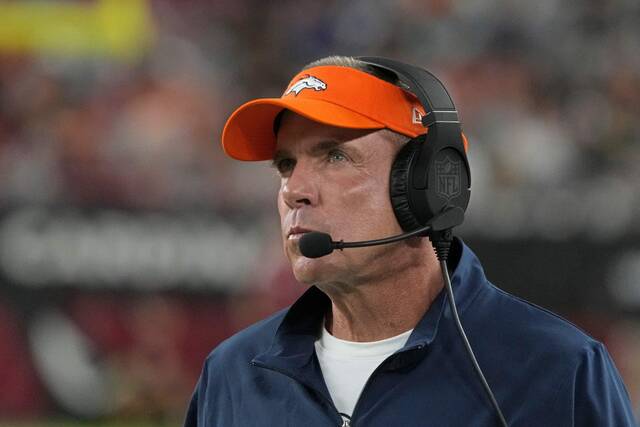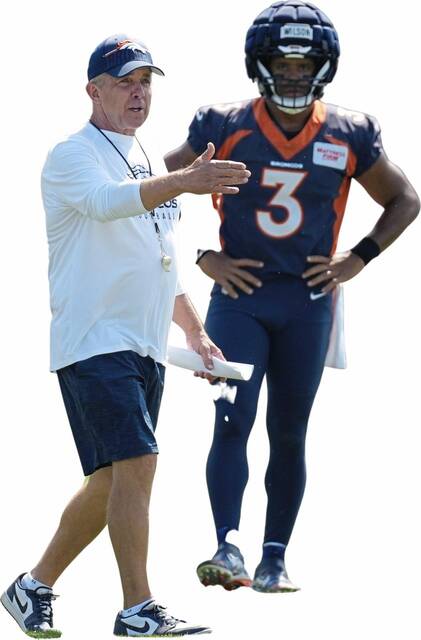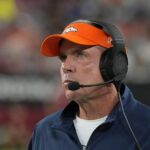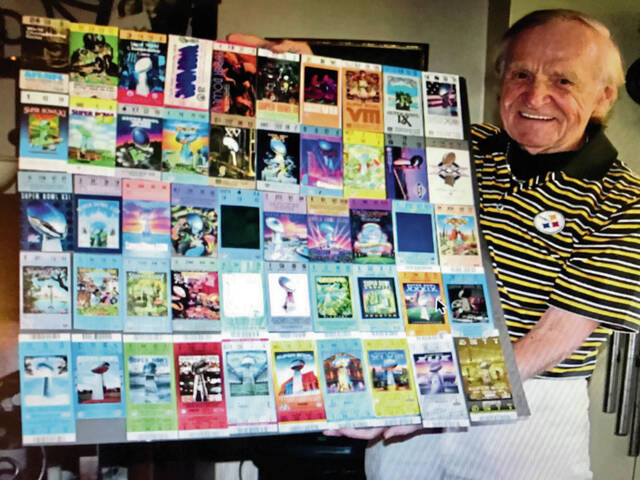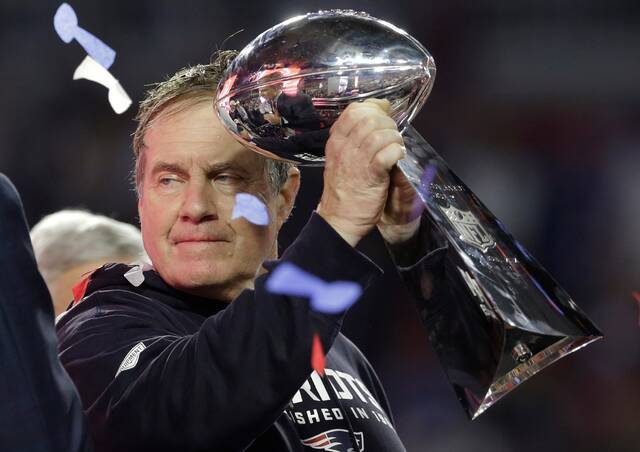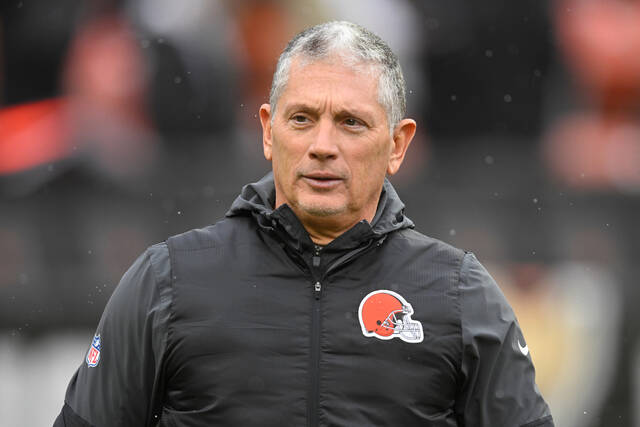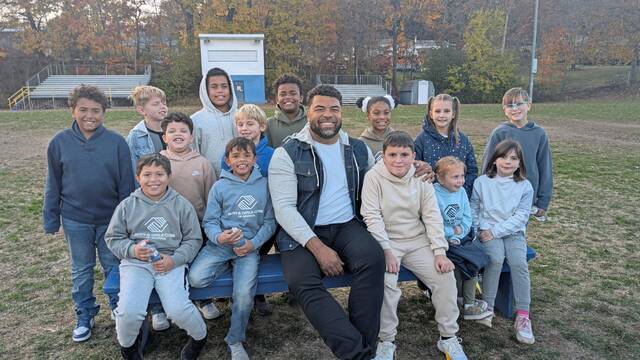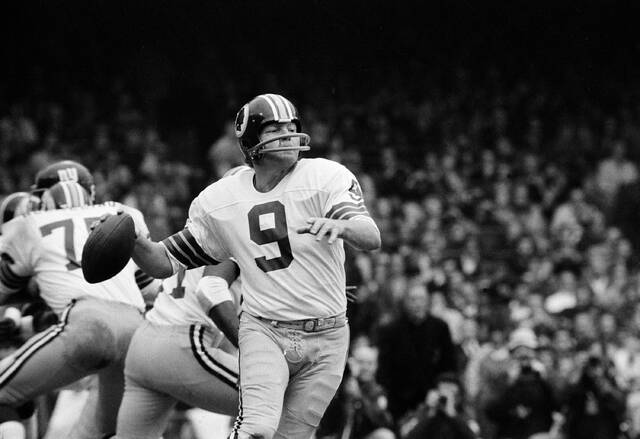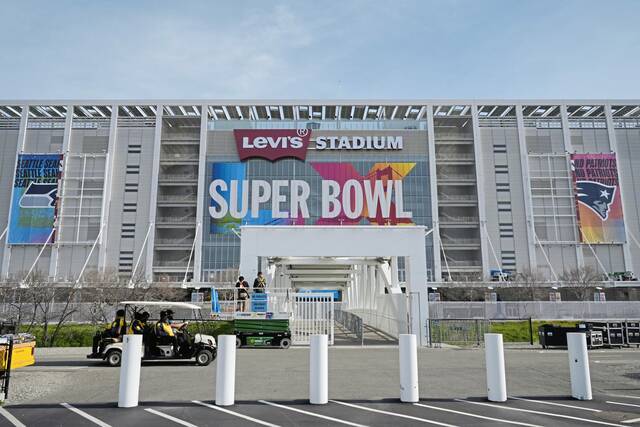DENVER — Shock rippled through Roy Banks as the oblong ball wobbled on the ground toward infamy.
The Who had cleared the Hard Rock Stadium turf in Miami moments before, and the football world settled in for the second half of Super Bowl XLIV. The New Orleans Saints, trailing 10-6 and kicking off to Indianapolis, needed a defensive stop.
Then, suddenly, they didn’t.
In perhaps the most audacious call of his career, New Orleans coach Sean Payton dialed up a surprise onside kick. The Saints recovered.
Five Drew Brees completions and 58 yards later, they took their first lead of the night. By the end of that February 2010 evening, they hoisted the Lombardi Trophy.
The decision stunned Banks, a star wide receiver at Eastern Illinois in the mid-1980s, but not for the same reason as so many others watching around the world.
In fact, the opposite.
He’d seen this before. From Payton.
The way Banks recalls it, Payton in September 1986 persuaded Eastern Illinois coach Al Molde to surprise Southern Illinois with an onside kick to start the game. They got it and rolled to a lopsided victory.
Payton wasn’t the special teams coordinator or the offensive play-caller, though. He was the quarterback, a senior who threw for 400 yards that day, 3,000-plus for the season and more than 10,000 in his college career.
More than two decades later, he played the same aggressive card under the sport’s brightest light.
“I said, ‘This fool, he really did it. He really called that play,’ ” Banks said. “He had a feeling for it because it was unexpected. I saw it at EIU, and it was the same thing. But you’re on the biggest stage. You’re going to call an onside kick in the Super Bowl?
“He’s got no fear, though. The guy has no fear.”
Now Denver is his second head-coaching job — a second act for a Super Bowl-winning coach with a resume that was already worthy of Hall of Fame consideration.
The to-do list remains a mile long and the expectations a Mile High. Why do it? Why ditch the cushy television gig and Southern California digs and come to the Front Range to take on such a building project?
“Have you ever done something that, you’re so excited after you’ve done it once and you can’t wait to show somebody?” he asked rhetorically earlier this summer. “… That’s kind of like winning a championship. You’re addicted to it. There is just nothing like it. It’s borderline obsessive.”
The Broncos already have seen Payton’s bravado on display.
At the outset of camp, he told USA Today that Nathaniel Hackett’s 2022 season here “might have been one of the worst coaching jobs in the history of the NFL. That’s how bad it was.”
While those words melted the internet, Dick Dullaghan was describing Payton to The Post as “gregarious,” “outspoken,” “fiery,” and someone who “has tremendous confidence in himself.” Dullaghan wasn’t reading Twitter, though. He was describing what Payton was like as a high school junior at his Indiana summer football camp more than 40 years ago.
Dullaghan, a longtime high school coach in Indiana, was a rival and eventually close friend and business partner with Payton’s high school coach, JR Bishop.
When Payton first started attending the Bishop-Dullaghan football camps, he had never even started a game at Naperville High in the Chicago suburbs. Yet he brimmed with outward self-assurance.
“The 7-on-7 games, you talk about a guy that wanted to win, oh my God,” Dullaghan said. “He was just always that way.”
But Payton was also always learning, especially from Bishop, who died last summer but whom Payton considers among his foremost mentors.
“My high school coach always thought when I was done playing, ‘You’re going to be a coach,’” Payton said. “I heard that a number of times. You don’t want to hear that because you just want to play. But when I finished (at EIU), I had a tryout with the Chiefs, was in arena football, up in the CFL and then back down (to the Chicago Bears) during the strike season.
“Pretty soon it was, OK, my mom’s wondering, ‘All your friends are getting married, you don’t have any health insurance, what’s the deal?’ So I got into coaching in 1988.”
He coached Marshall Faulk at San Diego State. He got his first chance to call plays at Miami (Ohio) in 1994. It hardly mattered that he’d never done it before — at least as a coach. He ran with the opportunity.
After two years at Miami, Payton spent 1996 on the staff at Illinois as the quarterbacks coach. He jumped from there to the same title with the Philadelphia Eagles in 1997.
How did that happen?
“Wherever you’re working, you’re constantly making an impression,” he said. “The equipment manager and the training room assistant knew Bill Callahan at the Eagles. They were looking for a quarterback coach and the reason I got that job is because two people that really weren’t necessarily coaches said (to Callahan), ‘This is a guy you’ve got to look at.’”
No surprise, he wasted no time asserting his opinions once he got there.
Only a couple of months into Payton’s first-ever NFL job, the Eagles had McCullough in for a tryout on his recommendation.
“I was coming off a pretty major knee surgery and I remember when I went to work out, I crushed that workout,” McCullough said. “And Coach Payton, right at the end of it said to the other coaches, ‘I told you guys he was the (expletive). I told you.’”
Payton might have been right, but McCullough’s knee injury kept him from ever making a real go of it as an NFL player.
Payton, though, was just getting started.
“Sometimes you’re blessed with good bloodlines,” Payton said. “I was blessed to work with Jon Gruden in Philly and learn offensive football. Then New York was the first time I got to coordinate and call plays and we went to the Super Bowl.
“Then law school for me was with (Bill) Parcells in Dallas. That was a higher education, a much broader education of being a head coach.”
Indeed, much of how Payton operates even today as a head coach is in the Parcells mold.
He engages in player psychology like Parcells.
“They’re the two best coaches I’ve ever been around — and Sean’s a little better at this than Bill, I think — of having a pulse of the team and knowing how to motivate,” said former linebacker Scott Shanle, who played for each between the Cowboys and Saints. “Knowing when a team is too high after a big win and how you have to treat them. Knowing when a team is low after a devastating loss and how he has to react.”
He conducts practice like Parcells.
“Structurally, I noticed right away how we practiced and how hard we practiced and the intensity that was required at his practice was Bill to a ‘T,’” Shanle said.
He talks like Parcells.
“If you watch Bill’s press conferences and then listen to Sean talk, you can see a lot of similarities, whether he’s describing a player or what he expects,” Shanle said. “How many times have I heard, ‘Dumb players do dumb things; smart players rarely do dumb things.’ He’ll have that up in the locker room.
“A lot of those sayings he hung up around the building I heard in Dallas with Bill.”
Broncos players and coaches have gotten a sense of Payton’s detail over the course of the offseason program and training camp. He had notes written down after their first August day on the field that weren’t so much about effort but where and exactly how coaches had drill stations set up. About why certain support staffers were standing where and how he’d like to see it different. He’s had input in almost every decision regarding the football side of the organization, from apparel to media relations strategy to the lunch room schedule to travel itineraries to the length of the grass on the practice fields.
“He’s very firm on his attention to detail,” wide receiver Courtland Sutton said. “Whether it’s pre-snap — penalties, whether it’s guys standing back while we’re running plays (at practice), everything for him is very intentional.
“There’s a rhyme and a reason to everything he’s doing.”


